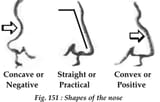>>76708743
>So they just made something up that sounds plausible.
Exactly.
>Modern science is just another faith system.
Kind of.
I'd say the modern "scientific establishment" is a faith system, in regards to its role in politics, the influence of politics on research aims, the economical and political motivations of universities and publishers, that sort of thing.
But scientific research itself is not a faith system. For instance take democracy. As an idea it's relatively fixed, but it is applied in different ways in different countries. In some countries it just doesn't work, the democratic system is completely warped by corruption, ethnic/religious history of the population, external pressure, etc. But all the individual differences in how democracy is applied, don't change anything about democracy as an idea, that remains the same regardless of what people do with it.
Scientific research is about plausibility, exactly like you said. You come up with an idea that has, say, a 60% likelihood of accurately describing processes in the real world. Then you invite someone to attack your idea, to expose weaknesses in your reasoning, flaws in your data. Based on that, you can patch those holes in your idea, and come up with a new idea, that has a 75% likelihood of being accurate. Then you invite more criticism, from others and yourself.
You will always strive for more, 92%, 93%, 93.5%, 93.6%, but never 100%. When you say your idea is "100% true", research stops, and it becomes a dogma that is enforced. If you're wrong, you'll never know it, because you're busier affirming your idea than looking for new data and insights.
The scientific endeavour is like this. But modern science has been completely warped by political events and the varied aims of people who can apply political and financial pressure to universities, publishers and individual researchers.


















